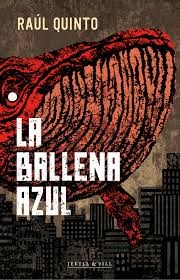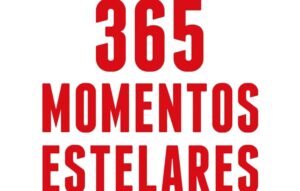
Idioma original: Basque
Original title: The son of the singer
Translation: Asun Garikano and Bernardo Atxaga
Year of publication: 2003
Valuation: Recommendable
‘The Great Basque Novel’is one of the dithyrambs that, as usual, appear on the book’s cover. That of the great novel It wants to have a definitive aura, the great work that represents a country, a language, which must be a text of generous length, with allusions to the identity of the culture in question, and which covers a significant part of its history through characters or a saga. In general terms, what I believe to be Bernardo Atxaga’s longest novel fits all these parameters, so that, at least conceptually, it could fall into that supposed category.
The action takes place in the author’s classic imaginary location, Fathersa small town, paradigm of rural Euskadi, which Atxaga founded in his most famous work. Back in the sixties of the last century, the protagonist is a group of young people from the town, some more open to the urban, others embedded in the more rustic traditions of small mountain villages. This could be, with its divergences and connections, the first of several segmentations of that first generation born after the Civil War. Because precisely another of the cracks, at first barely visible, will be their family background, in some cases dead or repressed, in others addicted to the Francoist side to different degrees, sympathizers, collaborators or outright murderers. Some know and remain silent, because the war ended long ago, out of fear, a spirit of survival or simple friendship. What at first seems alien to the carefree life of young people, gradually appears, as a result of chance or curiosity, until it begins to mark their own lives.
The wounds of war, poorly healed and perhaps hidden by the desire to forget in order to move on, are nevertheless reproduced in these young people who did not live through it, and who nevertheless live with some of those responsible, now well placed by the regime. The boys assimilate the past, they understand it in their own way, often different from that of their elders, and in a short time they embark on a voluntary struggle, sometimes under a very marked ideology, other times driven by the simple need to ‘do something’. Finding ourselves in Euskadi, in a small town where the essences are well preserved, in that decisive decade of the sixties, it is not difficult to guess that we are before the germ of ETA, a small part of whose development we will also see.
Atxaga has a very recognizable style, calm, one could say friendly, and, if we agree that life is not as hectic as it is sometimes presented to us, we can say that his cadence fits very well with reality. That is to say, he paces the story at a rather slow pace that, it must be admitted, can become somewhat heavy when the narration, as is the case, has a fairly evident crescendo in the background. Another thing is that he has voluntarily wanted to remove the focus from what seemed most important, the beginning of political violence, to reduce it to the inevitable though undesirable consequence of the discovery of a past that also operates as an element of maturation. In this way, those young people of Fathersamong the daily problems of their more or less idyllic world, they discover, and the reader with them, the shadows of what was supposed to be hidden under a trapdoor or behind a sullen silence, and thus comes the break with a previous life that seems far away even though only a few months have passed.
We also find some other significant aspects of the prose of the author of Asteasu, his ability to raise characters and differentiate them with subtlety, the fondness for the diversity of locations, sometimes perhaps somewhat forced (from California to Japan, no less) or the need to underline the prominence of the language, the ‘old language’ that in the story seems to succumb more to the diaspora, a globalization before the letterwhich is due to repression or cultural colonization (And here I have to reiterate, a minor detail of course, that I always find somewhat annoying the use of a kind of simultaneous translation, not only from Basque, which could have been resolved much better by means of footnotes, for example).
It may be too much to consider it the great basque novelalthough by plot, location and historical moment, even by length, it could meet the supposed requirements. But it is certainly a very estimable book, which can be read equally as a narrative work in itself, or as a portrait of an era and circumstances, if we are interested in this other aspect.
Other works by Bernardo Atxaga reviewed in ULAD: From the other side, Obabakoak, Those skies, Seven houses in France, The lonely man
Source: https://unlibroaldia.blogspot.com/2024/07/bernardo-atxaga-el-hijo-del-acordeonista.html


